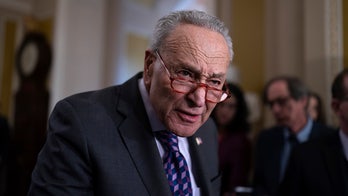BATON ROUGE, La. – Louisiana's Medicaid program on Wednesday started providing health care through private managed care networks in nine parishes around New Orleans, the first step in a sweeping revamp of the program that provides care to the poor.
Nearly 246,000 Medicaid recipients, mostly children, across southeast Louisiana were switched to the managed care networks in this first phase of the insurance-based model, called Bayou Health.
The roll-out hasn't been without problems, including an overloaded call center and low participation from enrollees in choosing their own health plans.
Only about a quarter of those shifted to the new insurance model chose how they will get that care. The state health department had to assign 73 percent to their new health plans because they didn't select their own among the five options offered. Health and Hospitals Secretary Bruce Greenstein said the self-chosen enrollment was higher than figures seen in other states.
New Orleans pediatrician Rachel Dawkins said the start of the Medicaid changes was marked with confusion about how to get patients registered, how to ensure they were seeing a primary care doctor within their networks and how to refer them to specialists.
"It's been a bit stressful," said Dawkins, whose practice is primarily Medicaid patients. "The patients don't understand the changes, the physicians don't understand the changes, the office staff doesn't understand the changes. It is a lot of growing pains and a fast learning curve. Hopefully, all the kinks will be worked out."
Gov. Bobby s to their health plan once a year in an open enrollment period similar to what happens in private insurance systems, Greenstein said.
The first parishes transferring to Bayou Health were Jefferson, Plaquemines, Orleans, St. Bernard, Livingston, St. Helena, St. Tammany, Tangipahoa and Washington parishes.
Ashley Politz, executive director of the Louisiana chapter of the American Academy of Pediatrics, said doctors were trying to work through the changes on the first day of the new system, hoping it will improve health care. She said no one reported immediate difficulties beyond the expected adjustments of working with patients to determine their networks.
"It's such a big change. I think everybody anticipated some bumps and glitches," she said.
As the New Orleans region and the parishes north of Lake Pontchartrain started the changes Wednesday, the Department of Health and Hospitals began education and outreach efforts to the next round of Medicaid recipients who will be switched to managed care networks April 1, those in the Baton Rouge and Acadiana regions, in south central Louisiana.
Greenstein said the state is estimated to save $135 million in the upcoming budget year that begins July 1 because of the Medicaid changes, and he said the revamp is expected to slow down the rate of growth in the Medicaid program in later years.
Lawmakers and a nonpartisan watchdog group have questioned whether the savings and improvements promised by the Jindal administration will happen. Among the questions raised are whether the changes will cause administrative headaches or will lead to more claims being rejected as the private companies seek to control costs and increase profits.
The Public Affairs Research Council of Louisiana, which did a recent report on the planned Medicaid changes, noted that similar private managed care Medicaid programs in other states have received mixed reviews, with some states improving health care and creating savings while other states have had trouble with fraud and increased administrative costs.
Medicaid recipients who won't be covered by the networks include nursing home residents, disabled and elderly residents who receive home- and community-based care, those enrolled in specialty service programs and recipients who receive both Medicaid and Medicare services.




